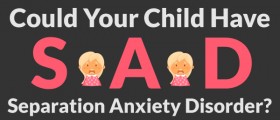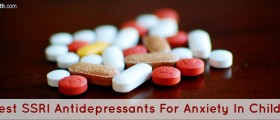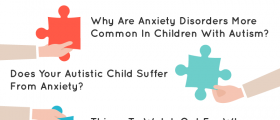
This mental problem involves children who are between 18 months and three years old. Namely, this condition manifests through their fear and panic striking as soon as they part their parents or some other, dear, members of the family. The fear of separation is ever present and the children are afraid that something bad might happen to them the moment they get separated from their parents. Still, every child, especially the youngest ones, has this kind of fear. Therefore, in order for this state of affairs to be called separation anxiety in children, a child needs to show the symptoms for more than four weeks. If this is so, this personality disorder meets all the criteria for a successful diagnosis.
Reasons behind SAD
As it is the case with most of the anxiety disorders, separation disorder being one of them, the causes are located deep into the child's psyche and may stem from some kinds of traumatic experiences which took place in the past. On the other hand, this disorder may be caused by a chemical imbalance in the child's brain. The latter case is directly influenced by genetics, where the child has prominent anxiety and fear genes. Also, if the parents are often anxious, the child, looking up to them, may show the same kind of behavioral patterns, evolving into separation anxiety disorder.
This phenomenon may affect older children as well. Namely, even though all humans seem to undergo this period of fear of separation and the very notion that his/her parents will not be there sometime in the future, there are cases when this anxiety issue may evolve into a disorder, being completely out of control and interfering with one's proper functioning in the society.
How To Recognize and Diagnose SAD?
Children with SAD will refuse to sleep alone, and will react harshly to temporary separation from their family. Quite commonly they are obsessed with the safety and the overall well-being of a family member, fearing that they might lose one of them sometimes in life. These children do not want to stay alone. On the contrary, they usually refuse to go to school. The stress and tension they are constantly under may lead them to feeling exhausted, suffering from muscle pain, headaches, stomachaches and similar fits. Additionally, their worry about health and well-being may be transferred and projected on themselves. Yet, most of the time they are too close to their family, refusing to sleep somewhere else, experiencing panic attacks upon separation.
Upon paying attention to the above mentioned symptoms, a child psychiatrist may diagnose this condition. Additionally, several other cognitive and behavioral tests are done. Possible treatment is usually effective and involves psychotherapy where the child is taught how to overcome his/her fears and understand this situation better. If that fails, antidepressants and other medications are prescribed through an adequate therapy.

















Your thoughts on this
Loading...